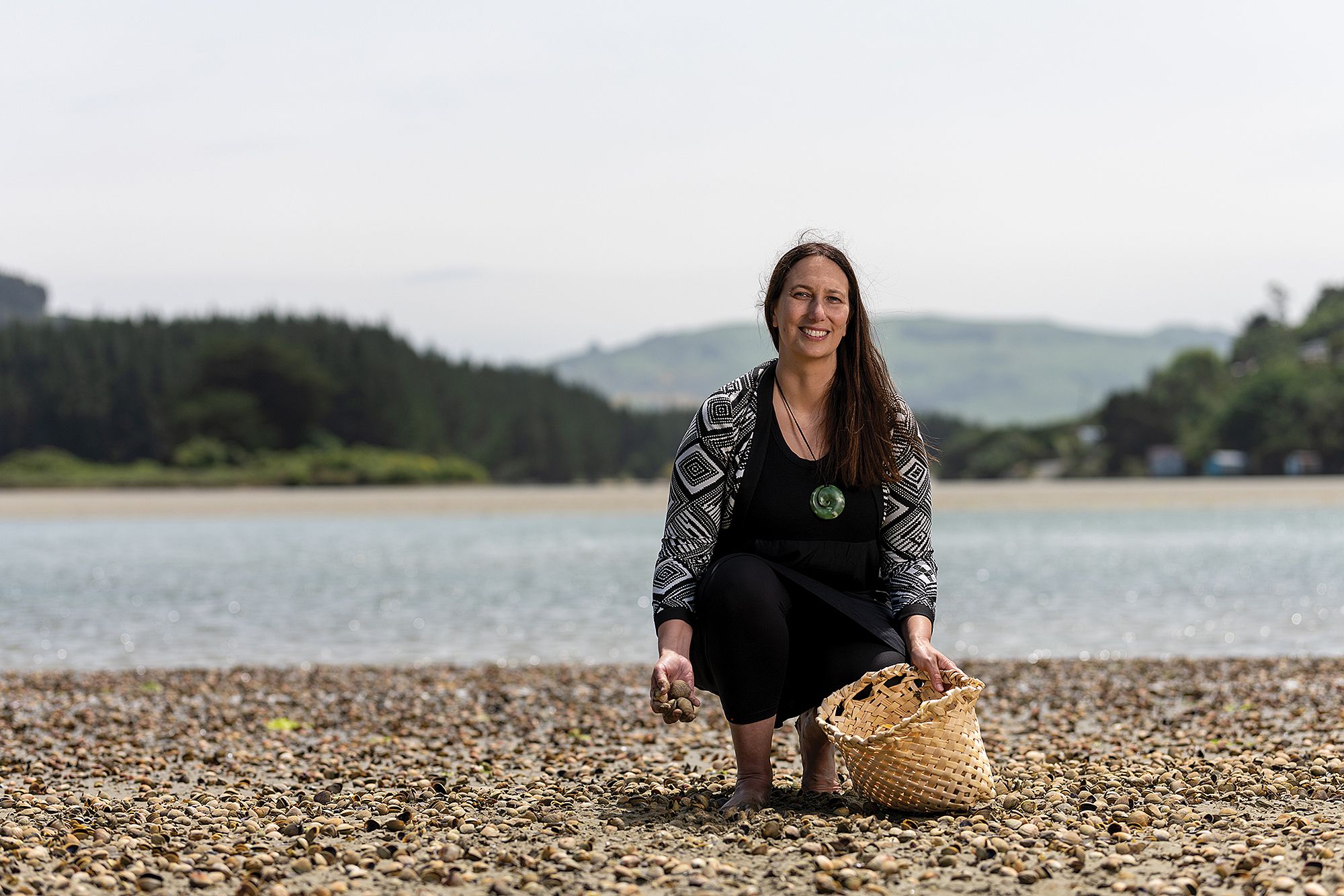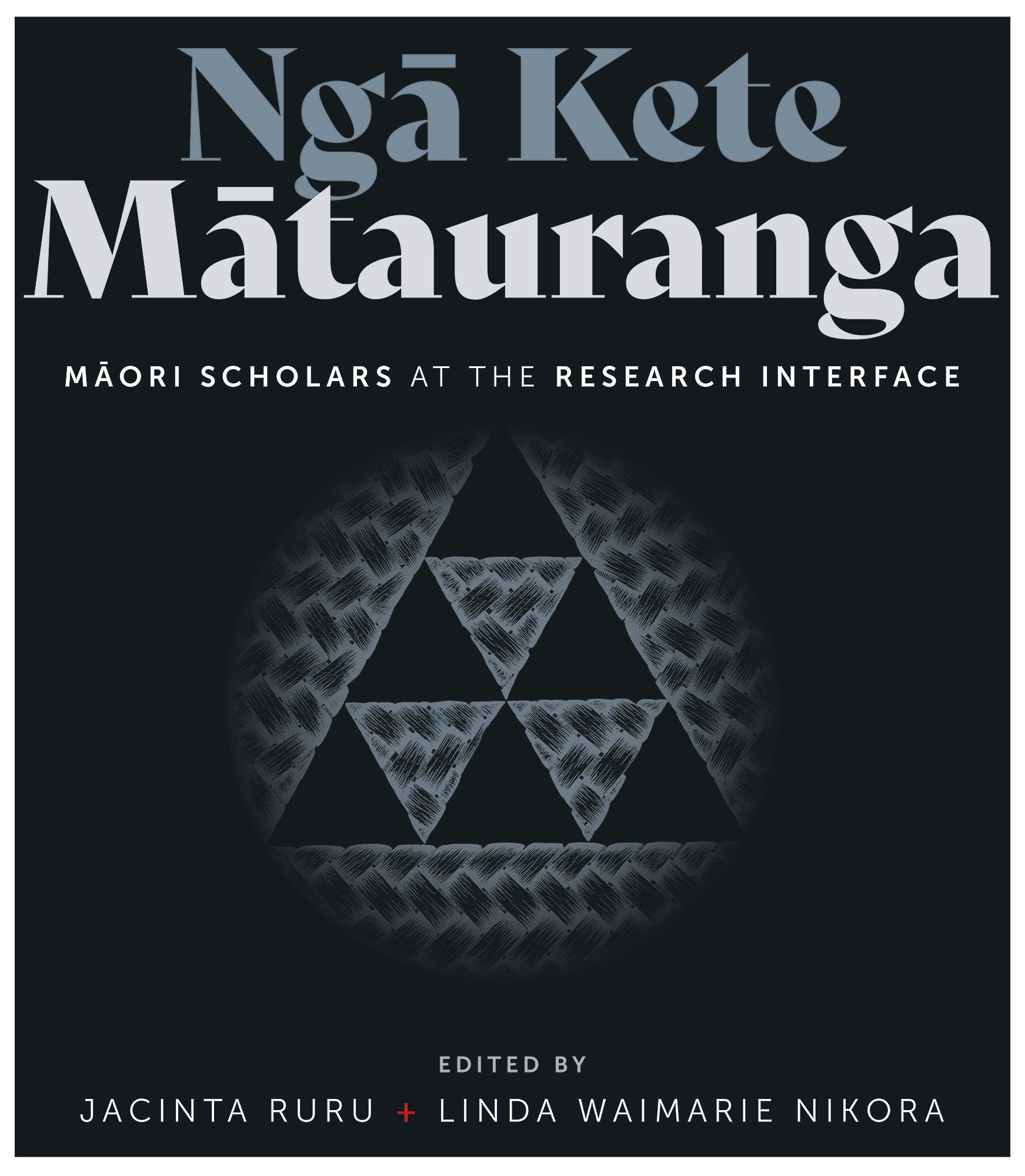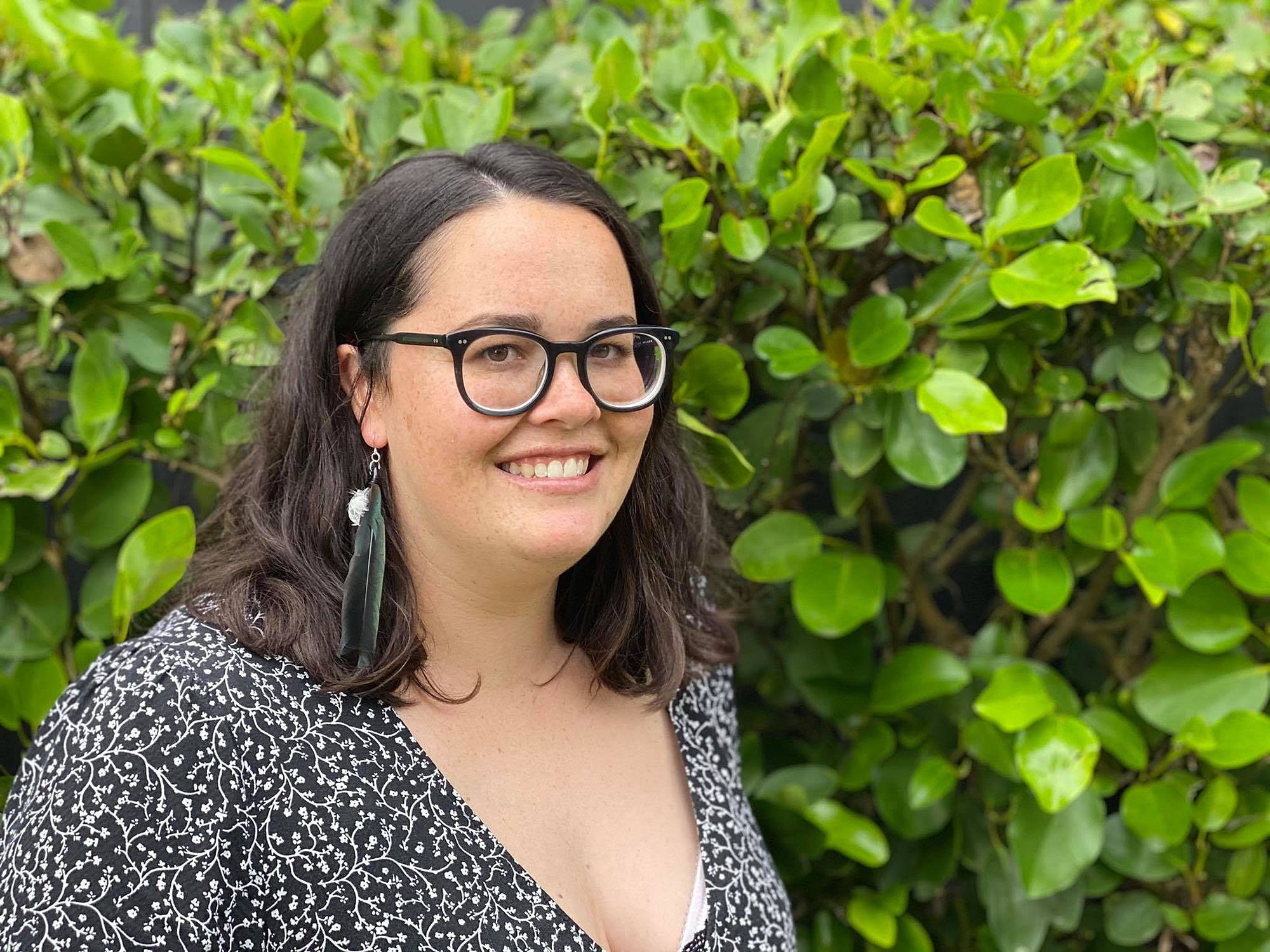Disturbing the Discipline: Reflections on Ngā Kete Mātauranga
Tensions ignited between Māori and universities in 2020, and from this emerged Ngā Kete Mātauranga, a collection of the personal journeys of 24 Māori scholars. Dr Tara McAllister reflects.
Universities were first established in Aotearoa 151 years ago, and since then they’ve failed to address racism. Institutional and structural racism at Waikato University in 2020 and, most recently, at Unitec this year has reignited longstanding tensions between Māori and universities. Rising from these tensions was an open letter signed by nearly 7000 academics and community members worldwide in support of Māori academics, and another by Māori professors calling for a review of racism in the tertiary sector. Co-edited by Jacinta Ruru and Linda Waimarie Nikora, Ngā Kete Mātauranga: Māori Scholars at the Research Interface shares the journeys of 24 Māori academics, bringing to the forefront the often-invisible experiences of Māori scholars at a vital time.
When I opened Ngā Kete Mātauranga,I didn’t expect to be brought to tears simply by reading the rārangi take. But the mana of those in the first few pages was powerfully breathtaking. All of them are leaders. And together they’ve been smashing glass ceilings and brick walls to make way for the next generation of Māori scholars. The rich variety of the disciplines of the scholars included in Ngā Kete Mātauranga counteracts the myth that there ‘aren’t any Māori in that discipline’ or ‘Māori don’t have PhDs in that’. We do and we have. We are (and always have been) physicists, ecologists, entrepreneurs and philosophers, both in and outside of the tertiary sector, ready to resist, disrupt and create in Aotearoa. With the backdrop of tensions between Māori and the universities, Ngā Kete Mātauranga is both necessary and timely.
I was humbled to kōrero with Jacinta Ruru, one of the editors, about writing this book and the challenges for Māori in the research sector. When asked about her thinking behind the book she shared:
Ngā Kete Mātauranga is about addressing the growing interest in our mātauranga but also to find space for Māori to be Māori in discussing the very real, growing hurt of Māori academics about not feeling listened to, or understood, or even welcome in the tertiary sector.
In a book centred around creating space for Māori to be Māori, I found it hard to choose one story to explore because every chapter was so rich, insightful and beautifully written. They’re all stories I will hold close as I travel on my own scholarly journey. When I feel or am told that I don’t belong within my own institution’s walls, I stare at the photograph of the always defiant and powerful māreikura, Professor Joanna Kidman. In the printed black words of Associate Professor Anne-Marie Jackson, I am reminded that I am no less Māori because I am not fluent in te reo. Dr Dan Hikuroa’s own life story of disconnection from his ancestral lands is a legacy that takes me back to my own. These stories mean something to me, as someone who is Māori and a researcher. I see my own experiences in them. I honour their legacies and create my own.
I was inspired by Dr Naomi Simmonds’ contribution to Ngā Kete Mātauranga because of the way she has disturbed, challenged and undermined the discipline of geography. I felt connected to her through her writing. Maybe because I look up to the path she has forged and the lasting imprint of her work on mana wāhine, or perhaps because we both grew up in small towns in South Waikato – she in Putāruru and I in Tokoroa. In her chapter ‘Ancestral Geographies: Finding my way home’,Simmonds begins with multiple starting points – the future, past and present – cleverly coaxing the reader through the piki and the heke of her journey, and serving as a reminder that Māori sometimes move in ways beyond Western constructs of time.
Simmonds writes about the complicated relationship she has with her discipline (geography), and how it was comfortable at times due to familiarity, but also uneasy. She tells us that, despite being valued by individual colleagues, her motives and values did not align with the university’s more broadly.
Any attempts at decolonising or transforming the discipline in any real way were always going to be challenged, minimised, diluted and undervalued: not by individuals … but rather by the systems of power within which the department and the discipline were firmly entrenched.
Simmonds' lived experiences describe some of the limitations and hostilities of working within the system; how sometimes the only way forward is to divorce your discipline. And through it, the reader is forced to imagine universities with no Māori scholars at all. In her first-year geography lectures as a student, Simmonds highlights that there was no Māori content or Māori lecturers, mirroring the experiences of many Māori students, myself included. I believe it is a right of all Māori students to have access to Māori supervisors and lecturers, who not only look like them but think like them. Lecturers who encourage us to think beyond the shackles of imported ideologies, who help us fulfil our ancestors’ wildest dreams.
Simmonds writes about the lack of cultural safety provided by universities and the everyday violence within their walls – an experience many Māori scholars will relate to. The type of violence that continually chips away at our resilience and attacks our wairua.
Colleagues openly asked for ‘cultural’ advice for their research proposals, asked me to write sections of their proposals for them, and gave me unsolicited advice to ‘go easy on the colonisation stuff’ and ‘ease students into the Māori worldview’. I have been questioned as to whether Kaupapa Māori and mātauranga is an ‘actual thing’. Assumptions that I gained my position, or a research grant, simply because I am Māori were implied on multiple occasions, and when I finally decided to move from geography to the Faculty of Māori and Indigenous Studies, other staff asked if that was a ‘good career move’, the underlying assumption being that Māori studies was somehow ‘less than’ an ‘established discipline like Geography’.
She alludes to the unsustainable toll it takes on the health of Māori academics when both existing in predominantly white spaces and attempting to decolonise them.
In a few short years, I could already feel the impacts of trying to decolonise the discipline and engage Māori knowledge within my teaching and research. Thus, in a way, I decided to ‘divorce the discipline’.
Jacinta also spoke to me about the lost opportunities for all New Zealanders when mātauranga Māori is largely ignored by our universities.
By not including mātauranga [Māori] we are losing out. We are blind to opportunities as we need all the best knowledges to find solutions. Let’s think about the biodiversity crisis, for instance. Mātauranga Māori solutions from here, in these lands, need to be at the forefront and then supplemented by other knowledges from around the world.
It's empowering to think of the way Simmonds and those before her have found scholarly homes outside of universities, in wānanga where Māori values and practices are deeply ingrained rather than performative curtains.
Leaving geography as a department and discipline to be housed within Māori studies and a Kaupapa Māori Research Institute, and subsequently leaving a mainstream university to go to a wānanga, has taken me on a journey to understand what it means to not simply ‘theorise’ Māori relationships to place, but to live them.
Throughout the book, there is a recurring pattern of scholars who are no longer employed in the discipline they were trained in, who found homes in Māori studies departments instead. The contributors show us that it is very difficult to simply exist, let alone flourish, in spaces dominated by people who don’t think like you. It's hard to be Māori and do things in a Māori way when Pākehā knowledge, thinking and people are privileged and normalised. Jacinta highlighted this in our conversation:
While we have a very static number of five percent as Māori academics – which is appalling and needs to change – we need to look at where that five percent are sitting. And to really succeed as Māori, the only place where you can find your place to be Māori is in a Māori studies department. We need flourishing Māori studies departments, but we also need all our departments to be safe places for Māori.
Kua takoto te mānuka. This book lays a powerful wero – that of significant leadership change. In Ngā Kete Mātauranga, Jacinta elaborates:
It is well past time that our country seriously commits to decolonising the tertiary workforce, curriculum and research agenda. Universities are not safe places and significant work needs to take place across our tertiary sector to ensure that our next generation of Māori scholars and lecturers are not having to repeat the same stories in here.
Kua tae te wā. The time has arrived for institutions to commit to meaningful change. No more fancy words stating “we value the treaty”. Show Māori how you value Te Tiriti o Waitangi by embodying and centring it in all decision making. Hiring more Māori staff is absolutely essential to this, according to Jackson. In our kōrero, Jacinta also related the need for Māori leadership back to her own university:
At the University of Otago, in our whole leadership team of about 20 only one person is Māori. There is often only one Māori voice. That just kind of seems a bit 1970s. This is 2021. We have Māori who are succeeding at the highest levels in academia, who are Fellows of the Royal Society and winning national and international awards. So why aren’t we seeing Māori academics leading our universities?
We need more Māori leadership in decision-making positions, as professors and vice-chancellors. Beyond that, the tertiary sector needs to do some critical reflection and address the institutional and structural racism continuing to wreak havoc on Māori scholars.
This book has challenged my current thinking and inspired me through the personal and honest experiences of tuākana Māori scholars. It has validated my own lived experiences as a teina and compelled me to contemplate what the future looks like for mātauranga at the research interface.
This book has taught me to push the boundaries. That it's ok to “divorce your discipline”like Naomi Simmonds has. It's ok to “work and disrupt a university”like Ocean Ripeka Mercier van Berkel has, and it's ok to create sovereign spaces like Anne-Marie Jackson has. For me, Ngā Kete Mātauranga paints a profoundly powerful picture of the way we, as Māori scholars, can continue to work for our people within universities, wānanga and the wider research sector.
I thank all the contributors to Ngā Kete Mātauranga for your brave, honest and inspiring words. The stories contained in this book are a call to action. They highlight institutional and personal racismand I hope that our universities receive the koha that is Ngā Kete Mātauranga with open and willing arms. This is a book that I, as a Māori scholar, will keep close and turn to when times are tough and I need guidance. It will be a well-loved book, like Decolonising Methodologies, sitting on the shelves of many Māori scholars, full of Post-it notes and vast sections highlighted and underlined.
.
Co-edited by Jacinta Ruru and Linda Waimarie Nikora, Ngā Kete Mātauranga: Māori Scholars at the Research Interface is published by Otago University Press.


